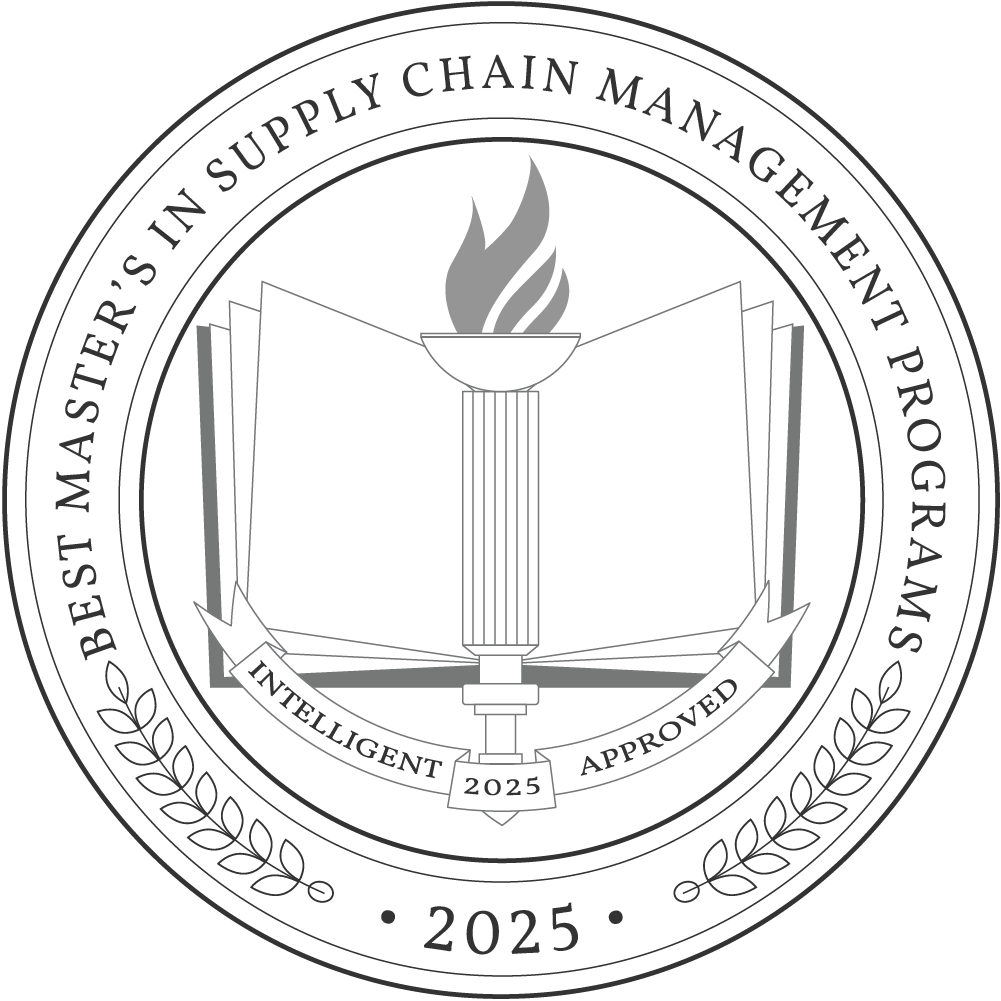For analytical thinkers aspiring to senior-level roles in supply chain management, where efficiency and timely product distribution are of the utmost importance, earning your master’s in supply chain management is an excellent way to achieve this goal.
A supply chain management degree will provide opportunities for lucrative careers and prepare you to meet the growing demands of global markets. With purchasing managers earning an average salary of $146,710 and storage and distribution managers at $111,870 yearly, these rewarding salaries emphasize the indispensable nature of these roles. Additionally, demand for logisticians is expected to increase by 19% over the next decade, far outpacing the average across all occupations in the United States.
Completing this degree takes 18 months to two years, with an average annual tuition of $20,513, making it an investment that will position you for success in a fast-paced field.
Why Trust Us
The Intelligent.com Higher Education Team is dedicated to providing students with independent, equitable school and program rankings and well-researched resources. Our expert-driven articles cover topics related to online colleges and programs, paying for school, and career outlooks. We use data from the U.S. Department of Education’s College Scorecard, the National Center for Education Statistics, and other reputable educational and professional organizations. Our academic advisory team reviews content and verifies accuracy throughout the year for the most current information. Partnerships do not influence rankings or editorial decisions.
- Analyzed over 2,000 national, accredited, and nonprofit colleges and universities
- 800+ rankings pages are reviewed and updated yearly
- Content is informed by reputable sources, surveys, and interviews with academic advisors and other experts
- Over 100 data points are reviewed for accuracy and quality throughout the year, including sources
How we rank schools
Our list features the best Master’s in Supply Chain Management degree programs at top colleges nationwide. Each school featured is a nonprofit, accredited institution — either public or private — with a high standard of academic quality for post-secondary institutions.
We evaluated each school’s program on tuition costs, admission, retention and graduation rates, faculty, reputation, and the student resources provided for online students. We collected data from trusted sources like the National Center for Education Statistics, individual school and program websites, school admissions counselors, and other data sources. Then, we calculated the Intelligent Score on a scale of 0 to 100 based on the following criterion:
Academic Quality:
- Admission rate versus enrollment rate
- Retention rate of students who return after year one
- Accreditation status (regional and programmatic)
- Nonprofit status, both private and public institutions
Graduation Rate
- Overall graduation rate
- Total number of currently enrolled students, including diversity metrics
- Student-to-faculty ratio
Cost and ROI
- In-state and out-of-state per-credit tuition rates and fees
- Required credits to graduate
- Earning potential after graduation
- Availability of federal student loans, scholarships, and other financial aid options
Student Resources
- Available student services for online-only and hybrid programs
- On-campus amenities like tutoring centers and the number of libraries
Read more about our ranking methodology.
Best 14 Accredited Master’s in Supply Chain Management Programs
FiltersInstitution Type
Status
- Intelligent Score
- Alphabetically By University Name
- Acceptance Rate
- Enrollment
- In-state Graduate Tuition
- Out-of-state Graduate Tuition
- In-state Undergraduate Tuition
- Out-of-state Undergraduate Tuition
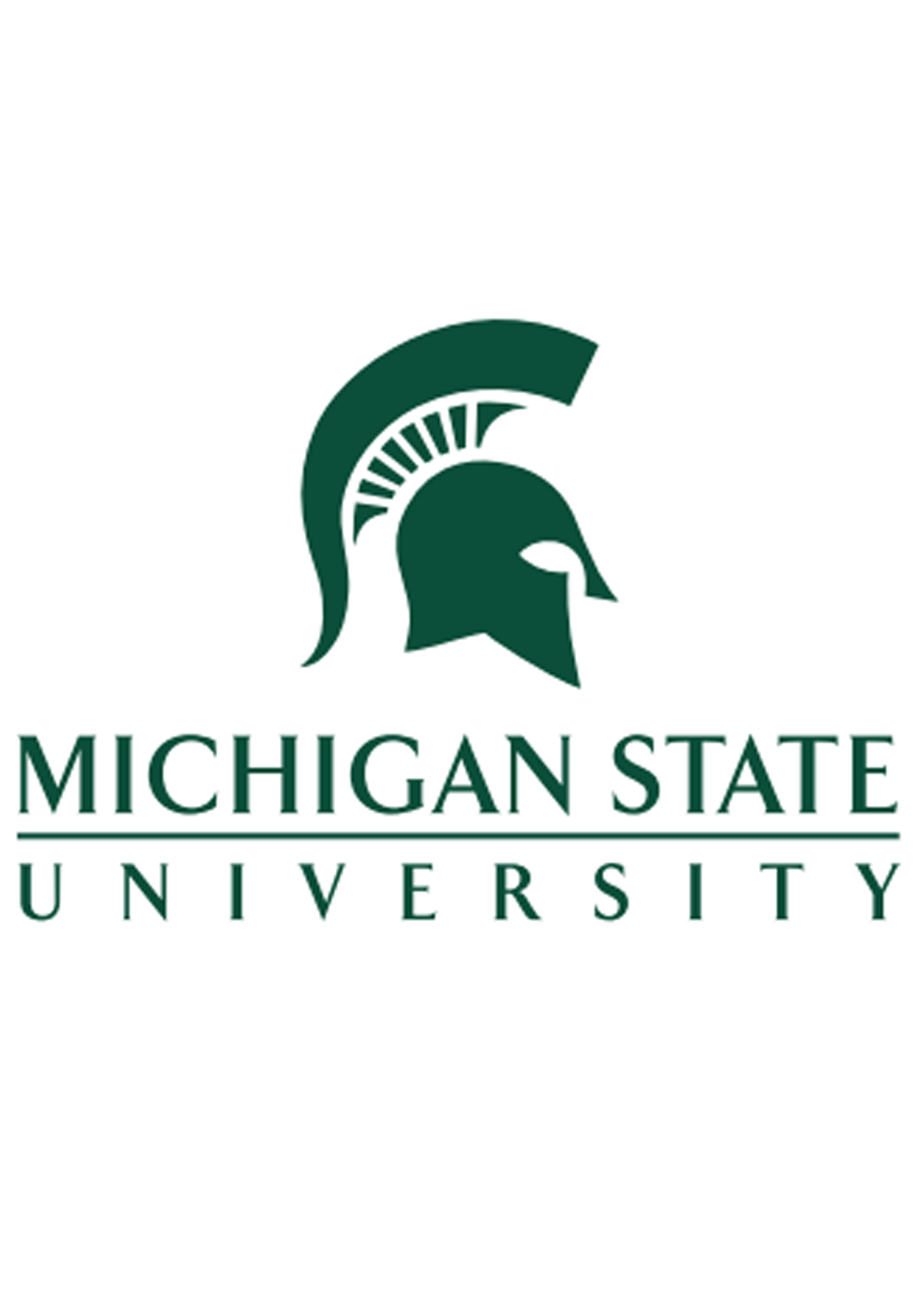
Michigan State University
Intelligent Score: 98.09In-state: $15,555
Out-of-state: $40,384
In-state: $18,858
Out-of-state: $18,858
SAT: 1100-1300
ACT: 23-29
$1,850
On-Campus
Association to Advance Collegiate Schools of Business
31

Boston University
Intelligent Score: 97.07In-state: $56,854
Out-of-state: $56,854
In-state: $56,854
Out-of-state: $56,854
SAT: 1310-1500
ACT: 30-34
$2,392
On-Campus
Association to Advance Collegiate Schools of Business
40

University of Southern California
Intelligent Score: 96.66In-state: $59,260
Out-of-state: $59,260
In-state: $47,880
Out-of-state: $47,880
SAT: 1340-1530
ACT: 30-34
$2,137
On-Campus
Association to Advance Collegiate Schools of Business
30

Georgetown University
Intelligent Score: 95.65In-state: $57,384
Out-of-state: $57,384
In-state: $53,136
Out-of-state: $53,136
SAT: 1380-1550
ACT: 31-35
$1,573
On-Campus
Association to Advance Collegiate Schools of Business
33

Texas A&M University Mays Business School
Intelligent Score: 94.69In-state: $8,395
Out-of-state: $36,849
In-state: $6,775
Out-of-state: $6,775
SAT: 1160-1380
ACT: 26-32
In-State: $437
Out-of-State: $978
On-Campus
Association to Advance Collegiate Schools of Business
32

University of Wisconsin - Madison
Intelligent Score: 94.31In-state: $9,273
Out-of-state: $37,161
In-state: $10,728
Out-of-state: $10,728
SAT: 1260-1460
ACT: 27-32
Resident: $900
Non-Resident: $1,688
On-Campus
Association to Advance Collegiate Schools of Business
30
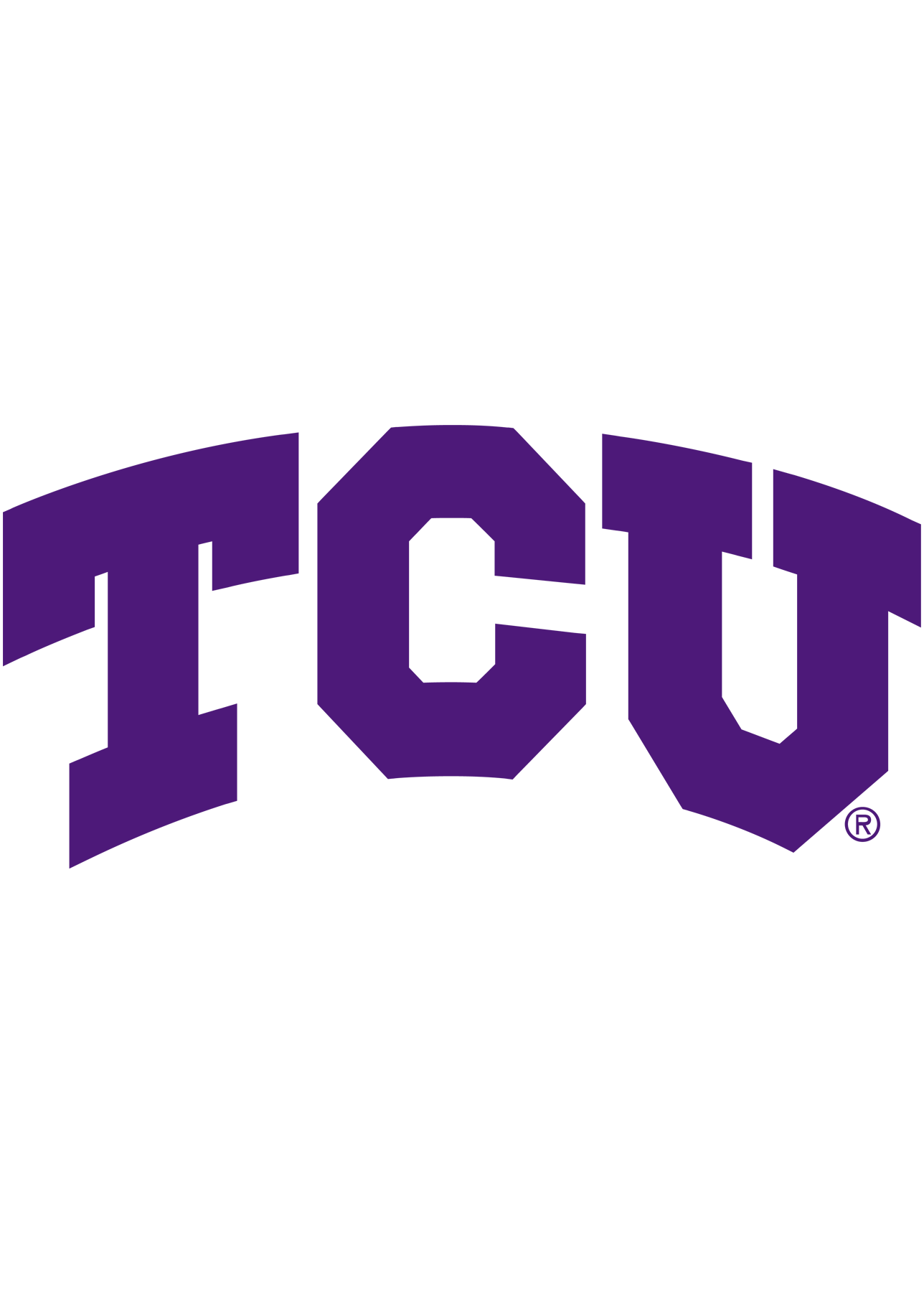
Texas Christian University
Intelligent Score: 94.15In-state: $51,570
Out-of-state: $51,570
In-state: $32,220
Out-of-state: $32,220
SAT: 1110-1320
ACT: 25-31
$2,145
On-Campus
Association to Advance Collegiate Schools of Business
30
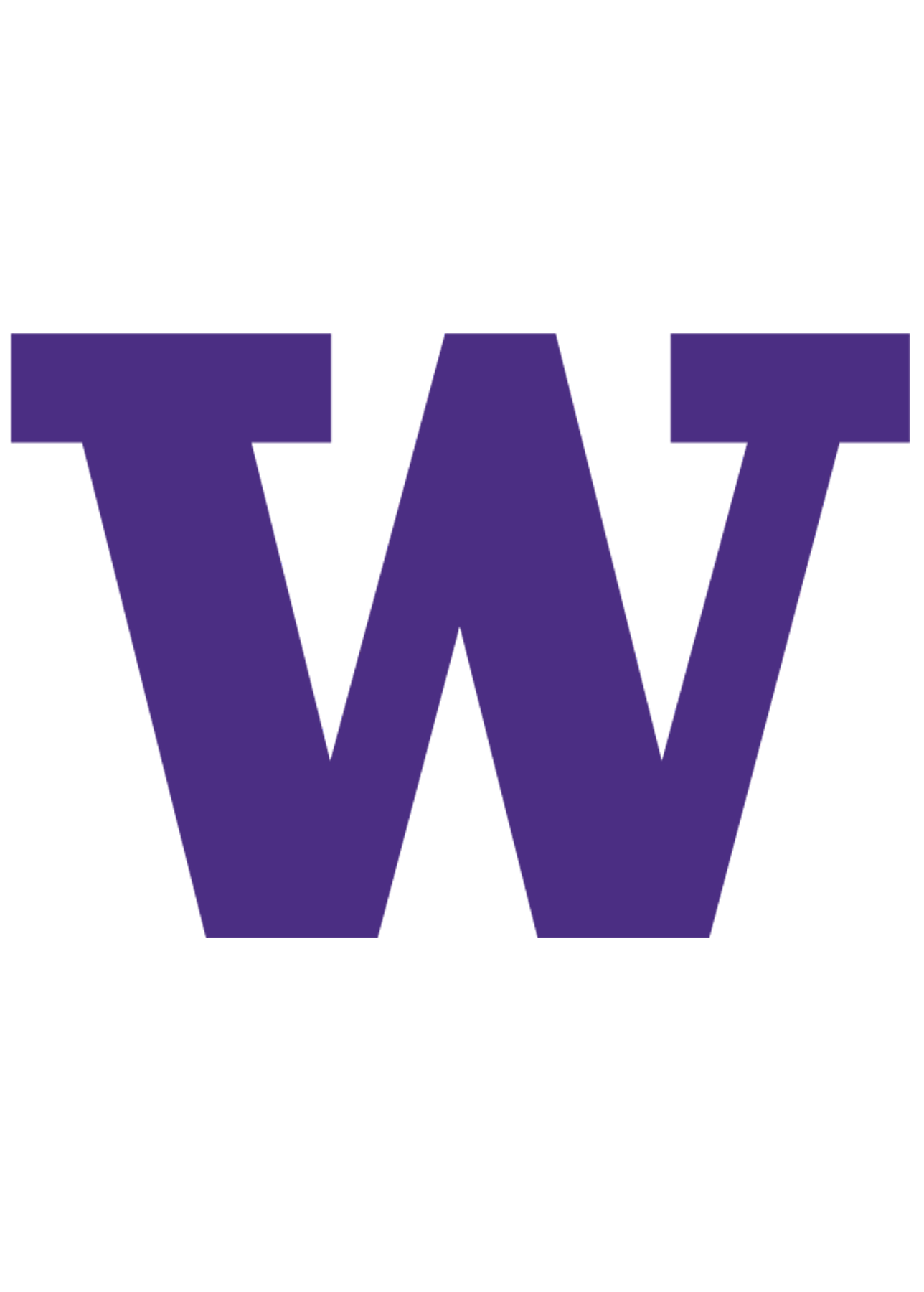
University of Washington
Intelligent Score: 94.04In-state: $10,629
Out-of-state: $37,998
In-state: $16,278
Out-of-state: $16,278
SAT: 1200-1453
ACT: 27-33
Resident: $1,038
Non-Resident: $1,788
On-Campus
Association to Advance Collegiate Schools of Business
44

University of Maryland
Intelligent Score: 90.67In-state: $8,824
Out-of-state: $34,936
In-state: $13,158
Out-of-state: $13,158
SAT: 1270-1480
ACT: 30-34
In-State: $828
Out-of-State: $1,805
On-Campus
Association to Advance Collegiate Schools of Business
30

Arizona State University
Intelligent Score: 89.16In-state: $10,710
Out-of-state: $28,800
In-state: $11,720
Out-of-state: $11,720
SAT: 1100-1320
ACT: 21-28
In-State: $413
Out-of-State: $1,143
On-Campus
Association to Advance Collegiate Schools of Business
30
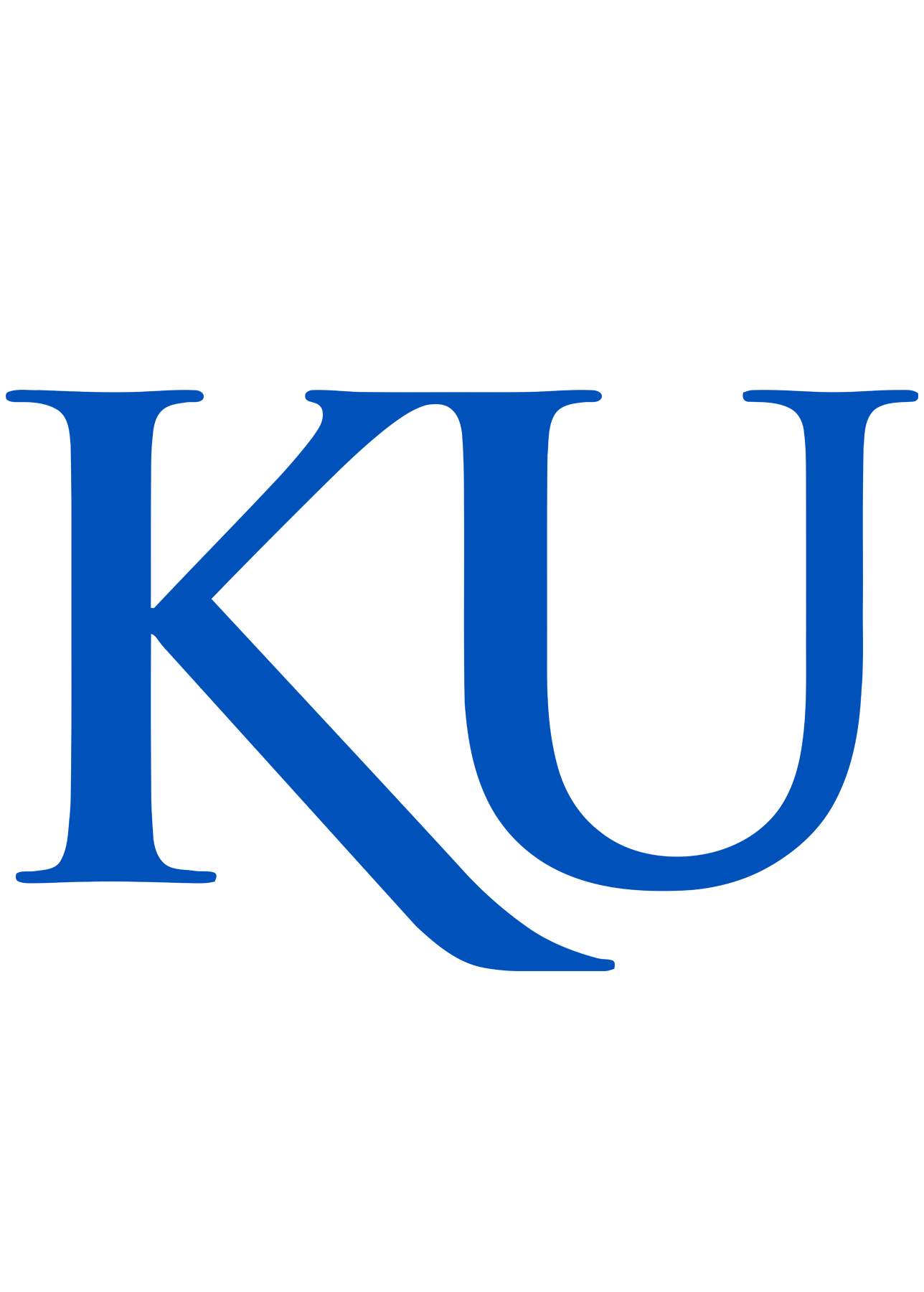
University of Kansas
Intelligent Score: 88.78In-state: $10,092
Out-of-state: $26,960
In-state: $9,989
Out-of-state: $9,989
SAT: 1070-1320
ACT: 22-29
In-State: $437
Out-of-State: $1,047
On-Campus
Association to Advance Collegiate Schools of Business
30

Indiana University
Intelligent Score: 88.34In-state: $9,815
Out-of-state: $36,194
In-state: $9,786
Out-of-state: $9,786
SAT: 1120-1350
ACT: 24-31
In-State: $359
Out-of-State: $1,025
On-Campus
Association to Advance Collegiate Schools of Business
30

Marquette University
Intelligent Score: 86.9In-state: $44,970
Out-of-state: $44,970
In-state: $21,690
Out-of-state: $21,690
SAT: 1160-1340
ACT: 25-30
$1,295
On-Campus
Association to Advance Collegiate Schools of Business
31

North Dakota State University
Intelligent Score: 86.79In-state: $8,606
Out-of-state: $12,909
In-state: $7,013
Out-of-state: $7,013
SAT: 1028-1243
ACT: 20-26
In-State: $421
Out-of-State: $632
On-Campus
Association to Advance Collegiate Schools of Business
30
How to Choose a Master’s in Supply Chain Management Program
Choose your area of study
While supply chain management is already niche, you can customize your education further by choosing an area of study — frequently called “specializations” — to better align your academic pursuits with your career goals.
Options may vary depending on your school, but some typical specializations include logistics and transportation, procurement, and supply chain analytics. Logistics and transportation is ideal for aspiring supply chain professionals interested in the movement and delivery of goods, while procurement suits those focusing on purchasing and negotiation strategies. Supply chain analytics is perfect for data enthusiasts aiming to optimize operations through data analysis.
Research schools and programs
Once you’ve selected a specialization within supply chain management, you can begin researching schools and programs that suit your educational needs. Consider asking the following questions to guide your research:
- What are the core and elective courses that focus on your specialization?
- What experiential learning opportunities — like internships or projects — are available?
- What is the faculty’s background in this area?
- Does a recognized accrediting body accredit the program?
- What are the career services and alumni networks like?
This information can be found on the program’s official website, but speaking with an admissions counselor or attending an information session can provide further insights.
Prepare for tests and applications
With your shortlist of supply chain management schools you’d like to attend, the next step is to prepare for tests and applications early.
Gathering transcripts and letters of recommendation at least two to three months in advance will ensure you have everything ready for application deadlines. Devote significant time to writing your personal statement, illustrating your motivations and career aspirations. If any of your chosen supply chain graduate programs require GRE or GMAT scores, consider enrolling in a test prep program well in advance to improve your performance.
Select your program
When acceptance letters arrive, you may have a big decision to make. Fortunately, you can simplify this decision by revisiting your initial criteria and focusing on what matters most in your educational experience. Additionally, carefully evaluate the total cost of attendance alongside any financial aid offerings. By taking this approach — considering both academic alignment and economic implications — you can make an informed choice on your ideal program.
Determine how you’ll pay for your degree
Figuring out how to finance your master’s degree in supply chain management involves taking a strategic approach to financial aid. Prioritize funding options that don’t require repayment — like scholarships and grants — which are awarded based on merit and need. Explore assistantship opportunities, which often offer tuition waivers or stipends in exchange for research or tuition duties. If you’re currently employed, ask your employer about tuition reimbursement programs, as many organizations invest in their employees’ education. Lastly, federal loans can cover any remaining financial gaps, offering relatively low interest rates and flexible repayment terms.
What Can You Expect From a Master’s in Supply Chain Management Program?
By earning your master’s in supply chain management, you’ll gain the expertise to manage and optimize supply chains in diverse and dynamic business environments.
A supply chain management curriculum will typically cover a wide variety of topics, including:
- Supply chain strategy
- Supply chain processes
- Supply chain logistics
- Operations management
- Global supply chains
- International business processes
- Quality management
- Risk analysis
- Critical thinking
- Cost management
- Inventory planning
- Purchasing management
- Data analytics
The best supply chain master’s programs will also provide you with insights into the latest developments in supply chain innovation, such as AI and the blockchain, which have revolutionized how products and information flow from suppliers to consumers.
Many master’s programs require a thesis or capstone course, which allows students to apply their knowledge to real-world challenges and demonstrate their ability to innovate and improve supply chain efficiencies.
Typically, these programs can be completed in 18 months to two years, depending on whether you enroll full-time or part-time. Upon graduation, you’ll be ready to take on leadership roles in the supply chain industry — driving organizational success through strategic supply chain management.
Potential courses you’ll take in a master’s in supply chain management program
- Supply Chain Analytics: An essential component in many curriculums, this course introduces students to data analysis techniques critical for decision-making in supply chains. Learners explore predictive analytics, simulation, and optimization models to address complex logistics challenges, enabling more efficient and effective supply chain operations.
- Global Supply Chain Management: A global supply chain management course will focus on the specifics of managing supply chains in a global context. It covers international trade laws, global sourcing strategies, and cross-cultural management. Students learn to navigate the complexities of global logistics, ensuring seamless operations across international borders.
- Supply Chain Technology: In this course, students are introduced to emerging technologies such as the blockchain, IoT, and AI and their applications in supply chains. They learn how to use these technologies to improve transparency, efficiency, and resilience in relevant operations, preparing them to lead innovation in their future roles.
- Strategic Sourcing and Procurement: Students learn the principles of sourcing and acquiring goods and services in ways that leverage supplier relationships to achieve strategic business outcomes. The course covers negotiation tactics, supplier evaluation, and contract management, emphasizing cost reduction, quality improvement, and innovation.
Master’s in Supply Chain Management Degree Frequently Asked Questions
How do I apply to a master's in supply chain management degree program?
While admissions requirements may vary slightly depending on the institution, many share similar criteria. Typically, this includes:
- A bachelor’s degree from an accredited institution
- Official transcripts
- Resume highlighting relevant work experience
- Letters of recommendation
- Statement of purpose
- GRE or GMAT scores, although these may be optional for some programs
Due to the variability in application criteria among different schools, be sure to contact an admissions counselor before applying. They can clarify requirements and deadlines, helping you prepare a strong application.
How much does a master's in supply chain management degree cost?
The cost of a master’s in supply chain management degree varies by institution, with the average tuition for graduate programs during the 2020-2021 academic year at $19,749. Beyond tuition, you’ll need to budget for textbooks, course materials, and potentially living expenses if you’re attending on-campus. Costs can also differ significantly for in-state and out-of-state students at public universities.
Given these variables, it is crucial to discuss your financial situation and potential aid options with a financial aid counselor. This conversation can help you find scholarships, grants, and assistantships, making your academic goals more attainable.
How long does it take to earn a master's in supply chain management degree?
Earning this degree takes 18 months to two years for full-time students. Part-time enrollment will extend this timeline, generally taking three to four years to complete, as this usually entails spreading the coursework over a longer period to accommodate work or personal commitments. The total number of required credits also influences this timeline, with programs requiring more credits taking longer to complete.
